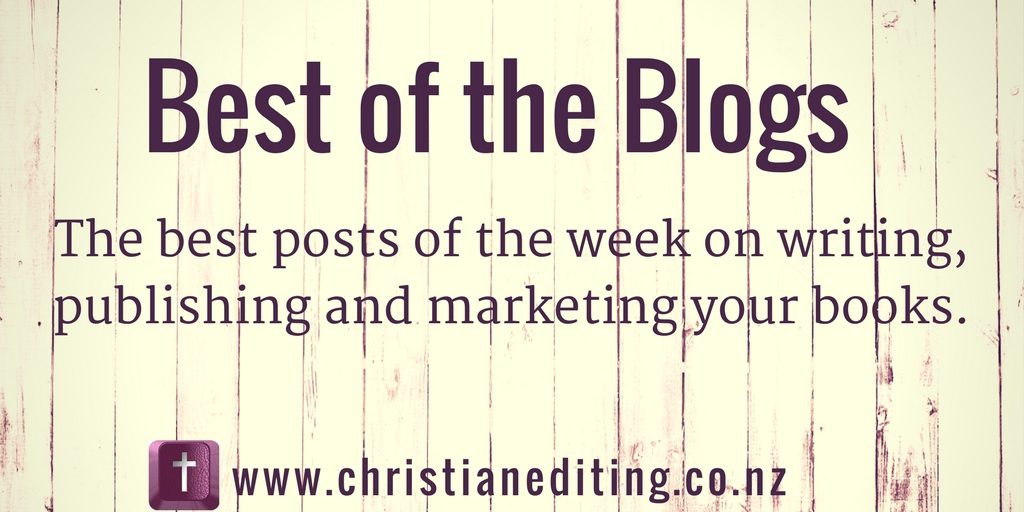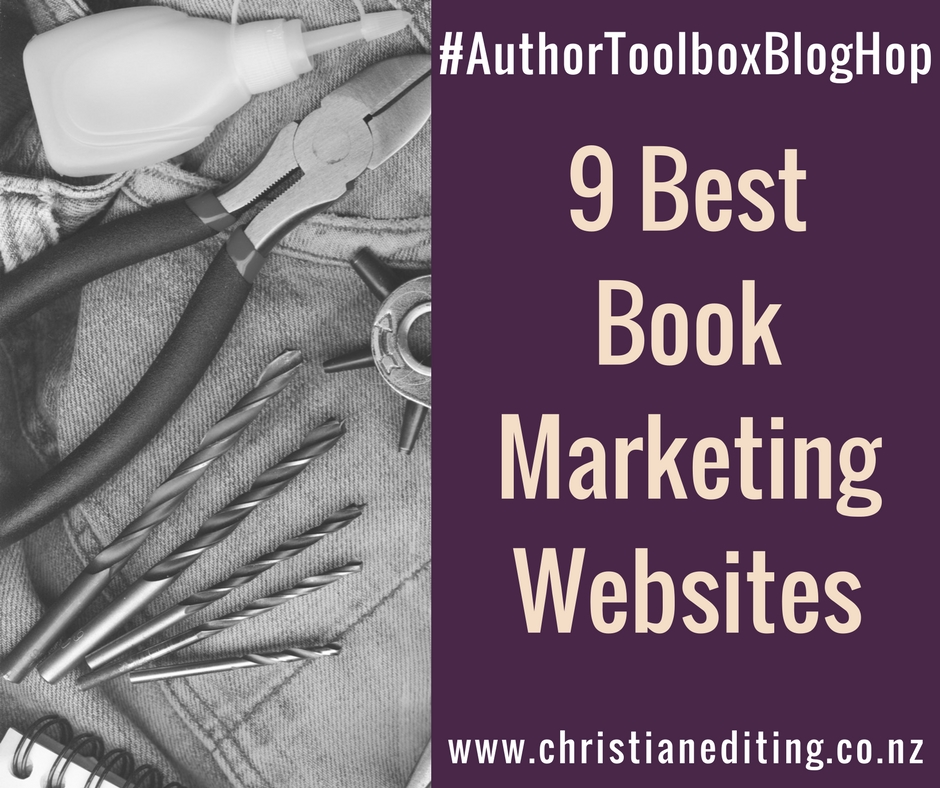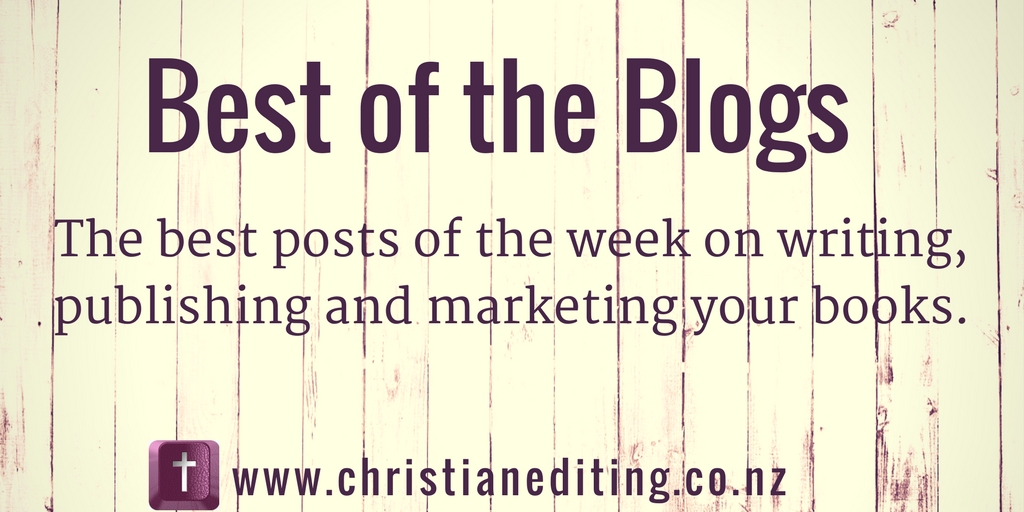This post is part of the #AuthorToolBoxBlogHop, the brainchild of Raimey Gallant. There are over thirty authors participating in the blog hop this month, each sharing on a topic related to writing, publishing or marketing. There are three great ways to follow the blog hop:
- Check out the list of participating websites on the main blog hop page
- Follow the #AuthorToolBoxBlogHop hashtag on Twitter and other social media sites
- Visit the #AuthorToolBoxBlogHop board on Pinterest
So … on to my 9 favourite book marketing websites.
I’m not yet published. Well, not in a book sense. I’ve got thousands of words published online in the form of hundreds of book reviews and blog posts–my book review blog will hit 1,000 posts in a couple of months, and at least 80% of those posts are reviews.
Even though I’m not yet published, I’ve been studying the art and science of writing, editing, publishing, and marketing for several years. If there’s one thing I’ve learned on the road to publication, it’s this:
Marketing starts a long time before you publish.
Which means everyone who wants to publish should have at least a passing awareness of current marketing trends. And there is a lot of marketing advice out there—some excellent, some good, and some downright misleading.
(I think the worst was the one which advised readers to add everyone they knew to their “opt-in email list”. Had she heard of the CAN-SPAM Act? Did she understand the meaning of the words, “opt in”? I can only assume not.)
Anyway, today I’m sharing the nine websites I find most useful when it comes to identifying book marketing trends.
1. BookBub
BookBub is the gorilla in the room of book marketing. They charge authors hundreds of dollars to advertise in one of their genre-specific daily emails, and turn down more potential advertisers than they accept. I’ve only heard of one author who didn’t make her money back on a BookBub ad (the book was middle grade fiction, so it doesn’t altogether surprise me. My kids are on their devices 24/7, but still prefer paper books).
But the power of BookBub’s featured advertisements isn’t why they are on my list. BookBub analyses their sales and other data to provide detailed articles on what sells, and what doesn’t. And that’s worth reading.
Chris Syme
Chris Syme is the owner of Smart Marketing for Authors, and the author of Sell More Books With Less Social Media, and the soon-to-be-published Sell More Books With Less Marketing. She also co-hosts a book marketing podcast with her daughter, bestselling romance author Becca Syme.

Reading Sell More Books with Less Social Media was a lightbulb moment for me, one of those times when someone says something that seems obvious, yet I’d never seen it before:
Not all authors are at the same level when it comes to writing and publishing, and our marketing needs to take that into account.
Dan Blank
Dan Blank is the owner of WeGrow Media, who help authors connect with readers. He has recently published Be The Gateway, where he shows authors how to research and understand their target audience, then work out how best to connect with those people. It’s about playing the long game in an industry where many people are looking for quick wins.

I like Dan’s philosophy of marketing—it’s similar to Tim Grahl, and is one I can embrace as someone who hates asking for the sale (something I’m working on). I enjoy reading his blog posts and newsletters—like his recent post reinforcing the importance of word-of-mouth marketing.
David Gaughran
David Gaughran is the author of Let’s Get Digital (why authors should consider digital self-publishing), and Let’s Get Visible. He was the first author to show me the importance of understanding and using Amazon algorithms to drive sales. The books are a few years old (and I read them both as new releases), so the information may have dated a little.
The other reason I like and follow David is because of his personal war against the vanity publishing, and the valuable information he provides on their various schemes. You might not think so, but this is marketing as well: it’s part of Product, one of the four Ps of marketing strategy.
Joel Friedlander
Joel Friedlander is The Book Designer. He hosts the monthly Cover Design Awards, where he critiques author-submitted covers. He also hosts a monthly Carnival of the Indies, a round-up of what’s new in indie publishing (and writing, and marketing). He also attracts guest posts from some of the top names in digital publishing.
Rachel Thompson
Rachel Thompson of BadRedHeadMedia is the mind behind #MondayBlogs and the weekly #BookMarketingChat on Twitter.
She’s also the author of The 30-Day Book Marketing Challenge, which was the inspiration behind my own KickStart Your Author Platform challenge. Rachel doesn’t pull her punches, and brings twenty-plus years of pharmaceutical sales experience to her marketing advice.
Seth Godin
Seth Godin invented the idea of permission-based marketing, that we should work to grow a tribe of people who support us and our work. He posts a short blog post each day, and all are worth reading.
The Buffer Blog
I love Buffer. I loved their free version, and I love the Awesome plan even more. Buffer enables me to manage my social media sharing without going mad. Hootsuite has similar functionality, but I find the Buffer interface much more user friendly.
But that’s not the reason Buffer is on this list. They’re on my list because of their blog. They share millions of social media posts, and collect information on the performance of those posts. That enables them to write meaty blog posts that answer a lot of social media questions: when is the best time to post? How many times a day should you post? Do you need to use hashtags? Images? Which social media networks perform best?
Buffer knows, and Buffer tells us.
Tim Grahl
Tim is the owner of Outthink Group. He is the author of Your First 1,000 Copies (which preaches the importance of building an email list and using those connections to market your book), and The Book Launch Blueprint (which reinforces the importance of building an email list, and using those connections to launch your book).


He’s not about sell-sell-sell. He’s about building meaningful connections, about getting permission to contact people (through the email list), delivering relevant content, and outreaching from there.
It’s been several years since I read Your First 1,000 Copies. I’ve recently realised that while I’m doing Permission and Content reasonably well, I need to work on Outreach.
That’s my list of the best book marketing websites. What are yours?








